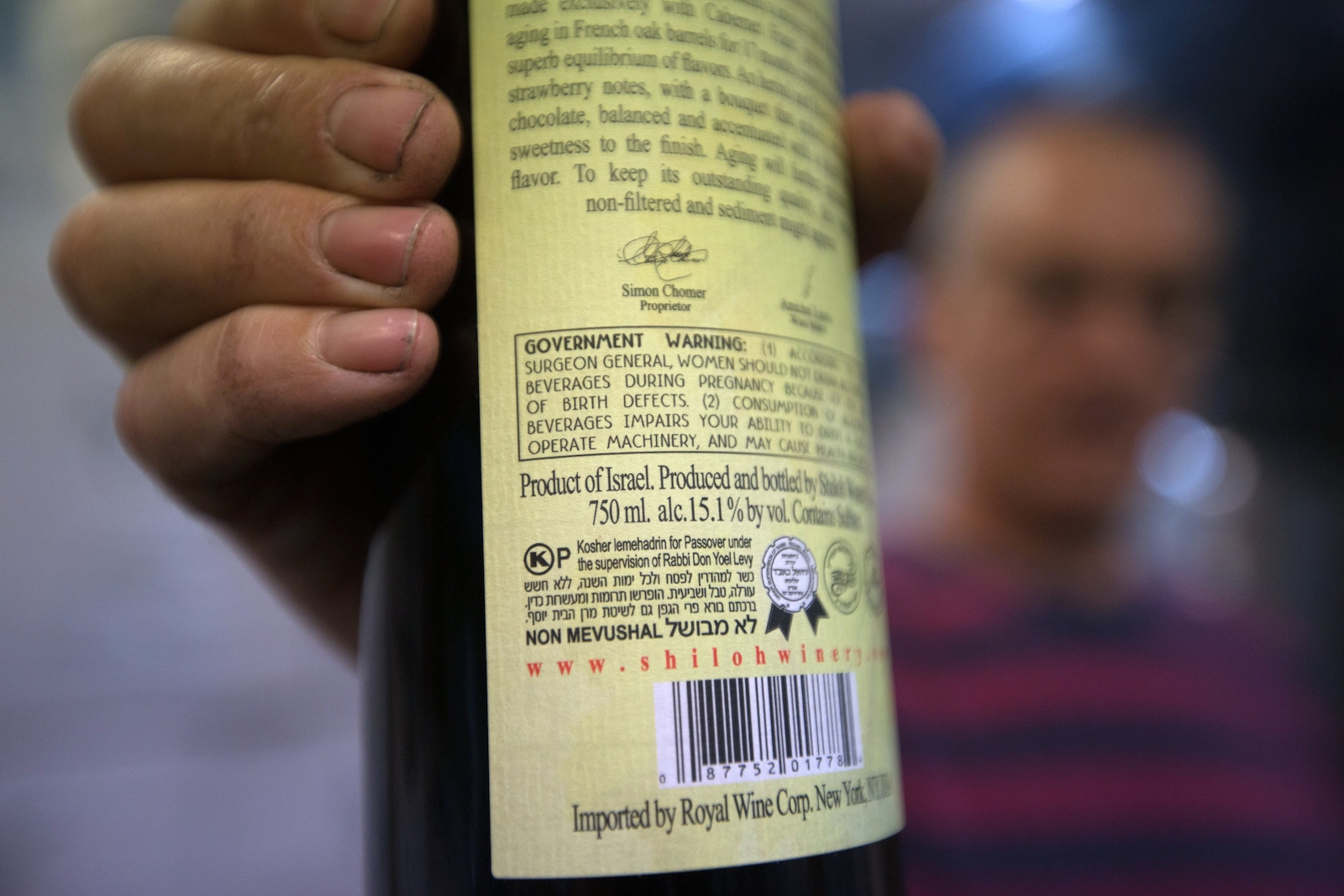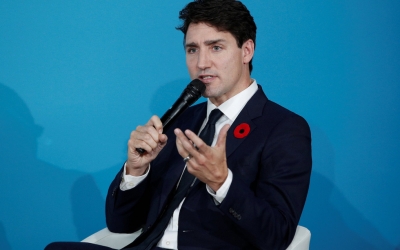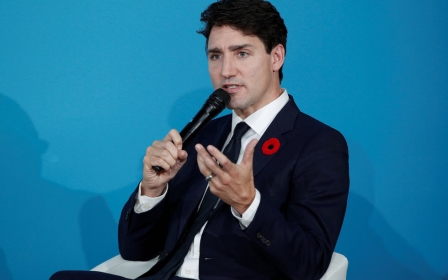Canada: Court hears lawsuit challenging Israeli settlement wine labels

A Canadian federal court is hearing a lawsuit against a 2017 decision to allow wines made and manufactured in Israeli settlements in the occupied West Bank to be sold in Canada under the label "Product of Israel".
David Kattenburg, a Jewish-Canadian activist based in Winnipeg, told MEE that he applied to the Federal Court of Canada for an order "declaring unlawful" the Canadian Food Inspection Agency's (CFIA) directive.
In mid-2017, the CFIA abruptly reversed its stance after it ordered liquor stores across the province of Ontario to de-shelve two Israeli settlement wines that were being sold with the label "Product of Israel".
The reversal came after widespread public pressure from pro-Israel groups in Canada and after the Canadian government directed the CFIA to a free-trade agreement with Israel, which it said showed that the labelling was correct.
The federal court will hold hearings on Tuesday and Wednesday in Toronto.
New MEE newsletter: Jerusalem Dispatch
Sign up to get the latest insights and analysis on Israel-Palestine, alongside Turkey Unpacked and other MEE newsletters
"What [the CFIA's decision] amounts to is an acknowledgement and endorsement of Israel's de facto annexation of the settlements," Kattenburg said in a telephone interview with MEE earlier this month.
By selling settlement wines in Canada with the "Product of Israel" label, "Israel can actually stake a claim to the Palestinian territory on Canadian store shelves", he added.
Agency flip-flops
Kattenburg first filed a complaint to the Liquor Control Board of Ontario (LCBO) - the body that oversees alcohol sales in the province - in January 2017, arguing that two Israeli settlement wines should not be sold in Ontario with the "Product of Israel" label.
The wines in question were made by Psagot Winery Ltd, which operates in the Jewish-only settlement of the same name, near Ramallah in the occupied West Bank, and Shiloh Winery Ltd, which is based in the northern West Bank.
A few months later, he filed the same complaint with the CFIA.
While the CFIA initially agreed with Kattenburg's assessment and ordered the LCBO to take the wines off its store shelves, it said the wines could not be sold as "Product of Israel" because they were made "from grapes that are grown, fermented, processed, blended and finished in the West Bank occupied territory", Canadian media reported at the time.
'Allowing settlement wines to be imported into Canada tariff free - extending tariff privileges to settlement wines - constitutes endorsement and acknowledgement and aid and support for Israel's settlement enterprise, which is illegal'
- David Kattenburg, activist
But less than 24 hours later, the CFIA changed its mind.
It said in a brief statement that it hadn't taken into account the Canada-Israel Free Trade Agreement (CIFTA), an accord in place since 1997 that outlines tariff-free imports and exports between the two countries.
To justify its reversal, it cited part of that agreement - Article 1.4.1b - which states that Israeli territory is defined as "the territory where its [Israel's] customs laws are applied".
"Further clarification of the CIFTA (Article 1.4.1b) indicates that these wines adhere to the Agreement and therefore we can confirm that the products in question can be sold as currently labelled," the CFIA said in a statement on 13 July 2017.
According to documents obtained by Kattenburg through the Access to Information Act and seen by MEE, several emails were exchanged between CFIA officials and their counterparts in Canada's foreign affairs ministry at the time to discuss the application of CIFTA in this case.
'Hypocritical'
But the government's CIFTA justification has been rejected by Kattenburg, who said the agreement is irrelevant to the issue at hand.
Kattenburg said he asked the federal court to issue an order stating that the free-trade agreement between Canada and Israel does not allow Israeli settlement products to be labelled "Product of Israel".
Beyond the tariff benefits that Israel may get from selling settlement products in Canada under that label, Kattenburg argued that the Israeli government and the country's wine producers are more interested in the symbolic benefits.
"That's what counts the most: Getting Canada to stand by Israel and allow Israel to label its settlement products [as] products of Israel," he said.
He accused Canada of violating international law, as well as its own public position towards Israeli settlements in the occupied territories.
On its website, Canada's ministry of foreign affairs says it doesn't recognise "permanent Israeli control" over the West Bank, East Jerusalem, Gaza, or the Syrian Golan Heights.
It also describes Israeli settlements as a violation of the Fourth Geneva Convention and "a serious obstacle to achieving a comprehensive, just and lasting peace".
In that context, Kattenburg said allowing Israeli settlement wines to be sold as "Product of Israel" in Canada constitutes a government "endorsement" of Israel's settlement enterprise.
"Allowing settlement wines to be imported into Canada tariff free - extending tariff privileges to settlement wines - constitutes endorsement and acknowledgement and aid and support for Israel's settlement enterprise, which is illegal," Kattenburg told MEE.
"Hypocritical is the most charitable term I can use to describe that."
Middle East Eye delivers independent and unrivalled coverage and analysis of the Middle East, North Africa and beyond. To learn more about republishing this content and the associated fees, please fill out this form. More about MEE can be found here.





